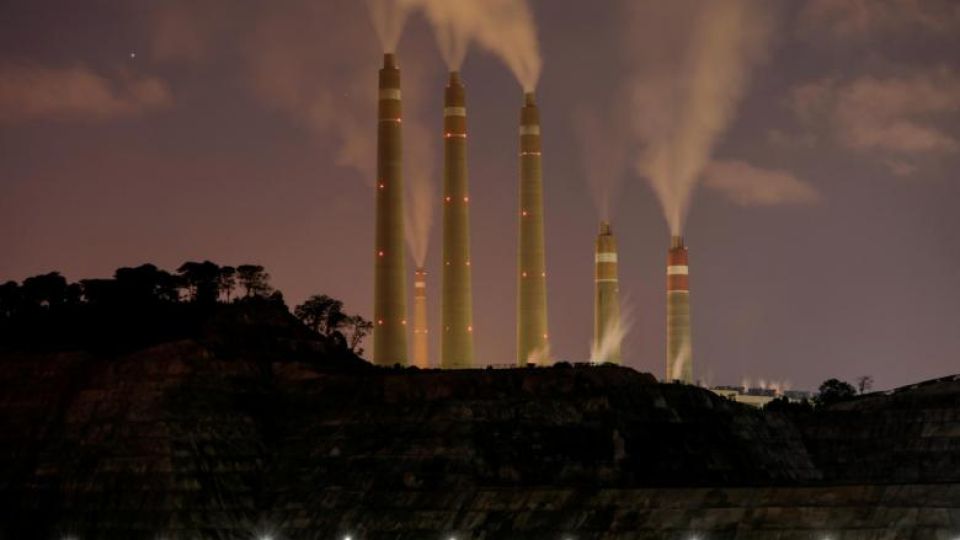February 18, 2022
SINGAPORE – Asia is critical to the global transition to a greener, climate-friendly economy and there is a “wall of money” available for countries in the region to help them invest in renewable energy, cleaner transport and industry, said the British official who helmed last year’s COP26 climate talks in Glasgow.
But to get there, countries in the region will also need to enact reforms of their energy systems and pledge more ambitious climate targets under the 2015 Paris Agreement, the world’s main climate pact, said Mr Alok Sharma, the president of COP26 and a British cabinet minister.
Mr Sharma, who is helping to coordinate global climate diplomacy with Egypt ahead of November’s COP27 climate conference in Sharm El-Sheikh, visited Indonesia and Vietnam this week to discuss how both nations can accelerate efforts to shift away from fossil fuels and speed up renewable energy investment.
“Green energy transition in Asia is going to be absolutely vital, as part of delivering a net-zero world,” Mr Sharma told The Straits Times from Jakarta on Thursday (Feb 17), referring to a key goal under the Paris Agreement of achieving net-zero emissions by 2050 if the world is to have a chance of limiting global warming to 1.5 deg C above pre-industrial levels.
But he said it is “effectively a race against time” if net-zero emissions can be reached to keep the 1.5 deg C target alive, given the globe’s huge reliance on fossil fuels and rising temperatures that are fuelling more severe climate impacts. Scientists say exceeding 1.5 deg C of warming will cause a deadlier and costlier future.
Developing nations such as Indonesia and Vietnam needed help from richer nations to speed up that green transition, he said.
“I would argue that there is literally a wall of money wanting to invest in green projects in developing countries.”
He pointed to the Glasgow Financial Alliance for Net Zero launched in April 2021, which brings together more than 450 financial firms across 45 countries responsible for assets of more than US$130 trillion (S$175 trillion) which aim to accelerate the green transition.
COP26 provided a model that could help Indonesia and Vietnam, he said. During the Glasgow conference, France, Germany, Britain, the United States and others announced the US$8.5 billion Just Energy Transition Partnership to support South Africa’s efforts to cut reliance on polluting coal.
The partnership aims to focus on South Africa’s electricity system and the initial US$8.5 billion involves grants, concessional loans and investments, and risk-sharing instruments, including to mobilise the private sector.
“I think what was done in the case of South Africa does provide a benchmark for other economies,” said Mr Sharma, adding that this was part of his discussions with Indonesia and Vietnam.
“That’s very much the discussion that we are having right now and we will have over the next few weeks and months,” he said.
“But what that will also require is for individual countries that are looking for support to set out very ambitious plans, in terms of cutting emissions, their 2030 NDCs, in terms of providing regulatory reform within their energy sector so that the private sector wants to invest,” he added, referring to national climate plans under the Paris Agreement called Nationally Determined Contributions.
“That’s the message that I have delivered on this Asia trip,” Mr Sharma said. He pointed to Vietnam, which needs investment in its grid to be able to include more renewable energy, including plans to substantially invest in offshore wind power.
Mr Sharma said 2022 was critical for global climate efforts and to put the promises made in Glasgow into action.
“I think there are lots of things that we got over the line at COP26 which collectively the world can be really proud of. But as I said in Glasgow, while we’ve kept 1.5 alive, the pulse is still weak. Strengthening the pulse depends entirely on governments, countries delivering on the commitments that they’ve made.”
This year, nations need to strengthen their 2030 NDCs and to ensure pledges to beef up climate finance to help developing nations remain on track, he said.
For example, doubling money by 2025 help poorer nations adapt to climate impacts and certainty that a long-promised US$100 billion in annual climate finance will be available from 2023.
“I think it’s really important that we show that continuity of purpose coming out of Glasgow,” he said, adding that he would remain in his role as COP26 president until November in partnership with Egypt.


